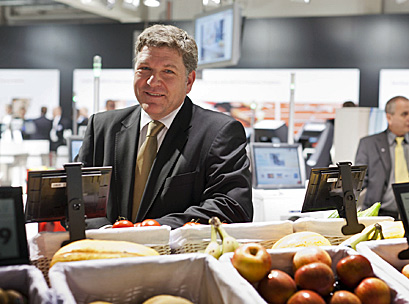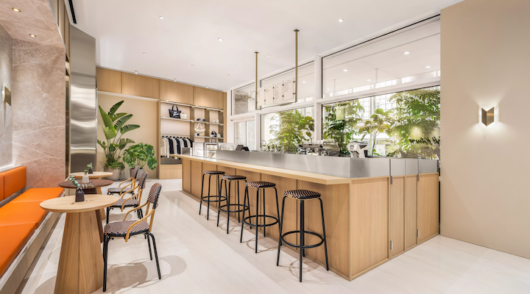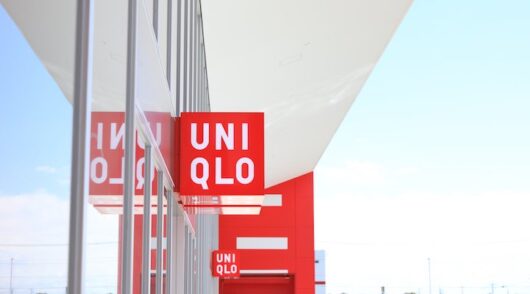Retailers and banks may be focused on a new generation’s way of paying for their purchases, but cash is still king.
An international gathering of retailing and banking IT executives in Germany recently were told 90 per cent of the world’s transactions by volume are still conducted in cash. By dollar volume the figure is closer to 60 per cent worldwide, but in some markets, like the Nordic region, cash transactions by volume are down to 40 per cent.
“A lot of people overestimate how fast cash will be replaced,” Thomas Fell, senior VP of retail at German cash handling technology manufacturer Wincor Nixdorf, told Inside Retail in an exclusive interview at the company’s giant trade show and convention last week.
Some 4000 IT professionals and 80 media representatives from 90 countries were gathered in rural Germany to see the latest technology in checkout systems, ATMs, cash handling devices, and other retail and banking solutions.
Fell said the decline of cash has been overestimated for years.
“If I step back 10 years, we should not be at 60 per cent today, we should be at 20 per cent.
“Cash seems to be more reluctant to disappear than we all expected.”
“I think cash is convenient to handle for small payments. So this will be an interesting discussion if NFC (Near Field Communication) is really coming massively. But massively means in a ‘convenient’ way,” cautions Fell.
NFC allows consumers to place a mobile phone against a sensor to complete an electronic payment for low value goods.
“If Apple does not announce it, it won’t happen; like it or not. The Samsung phone has it, other phones have it, but as long as Apple does not start with it, it will not be massive,” believes Fell.
Apple was widely rumoured to be including NFC in its recently launched iPhone 5 but it did not materialise, presumably because the company is not yet confident it has the technology right.
Once Apple proceeds, Fell predicts phones will replace many smaller value transactions.
“If nine out of every 10 transactions are cash, this number will go down because people will be able to pay (for things like) parking fees with their smart phones.
“In general, you have people who like to pay cash. But if you pay cash because you don’t want to pay with a credit card or a debit card, then you won’t want to pay with NFC either,” he says.
He predicts the technology will be used more for larger payments and become a substitute for existing non cash payment methods.
But Wincor Nixdorf CEO, Eckhard Heidloff, cautions NFC is “just an enabler” not a payment solution in itself.
Perhaps a stepping stone technology is the new generation of Visas and MasterCards being issued in Australia, for example, allowing small transactions to be settled by placing the card near a sensor.
It’s been adopted by New York taxis and Kuala Lumpur’s airport to city train line where travellers can wave a credit card in front of a scanner to pay their fare and open the turnstyle.
They’re growing in popularity in Europe as well, and already commonplace in Singapore shops.
“The issue is resetting the technology,” says Fell.
“If retailers have hundreds of thousands of card readers out there they will be reluctant to replace them just because of a chip on credit cards. It might cost 500 or 600 euros for one reader – that is not an issue – but if you have tens of thousands of readers across your network, that is a lot of money.”
Thus, retailers will likely wait until they next need to upgrade their POS system readers before adopting the new card system, slowing the rollout.
“It will appear but you have to change the read technology.”
Fell says never before have consumers had such choice of where and when and how to shop as they do today.
“They can shop anywhere at any time.”
He describes the increase of smartphones as a shopping tool as “dramatic”, giving consumers greater independence and control and, forcing retailers to adopt mobile solutions. Wincor Nixdorf’s strategy, he says, is to focus on how to meet this market trend.
Heidloff said in the presentation, both the banking and retail industries were demanding from their suppliers a willingness to change.
“We need to be identifying trends two and three years ahead of time.
“Retailers and banks alike are recognising consumers want to shop all channels and have all payment options available to them.
“Trying to second guess what they will demand next is an unending challenge.
“The Facebook generation is growing older. It’s difficult to tell what they will want in 2013 or 2015.”
Cue talks with PayPal, the online bank which has grown into an international payment provider, expanding offline and now eyeing a share of the retail point of sale market. PayPal was a controversial choice as an exhibiting partner at Wincor World – traditional bank clients are wary of the new player – but as senior VP and chief technology officer Reinhard Rabenstein explains, banks will soon have no choice but to work with it.
Retailers might say, ‘We are not going to accept PayPal’ and ‘We are not going to accept debit cards’, or any other form of payment, but in the end consumers want choice and they will force retailers’ hands in the end, he argues.
“PayPal is heading towards point of sale and looking for transactions.”
Banks, he says, must accept in time that while PayPal may be a competitor, if they don’t let a customer transact via PayPal, then they will lose a transaction.
Regardless of all this change, one thing remains certain concludes Fell: “Cash handling is still a big issue for retailers – it will not go away.”
*Robert Stockdill travelled to Wincor World in Germany at Wincor Nixdorf’s expense but there were no restrictions placed on his coverage of the event. This article originally appeared in Inside Retail’s PDF subscriber only premium weekly edition. For subscription information click here: http://www.retailbooks.com.au/shopexd.asp?id=80&bc=no






